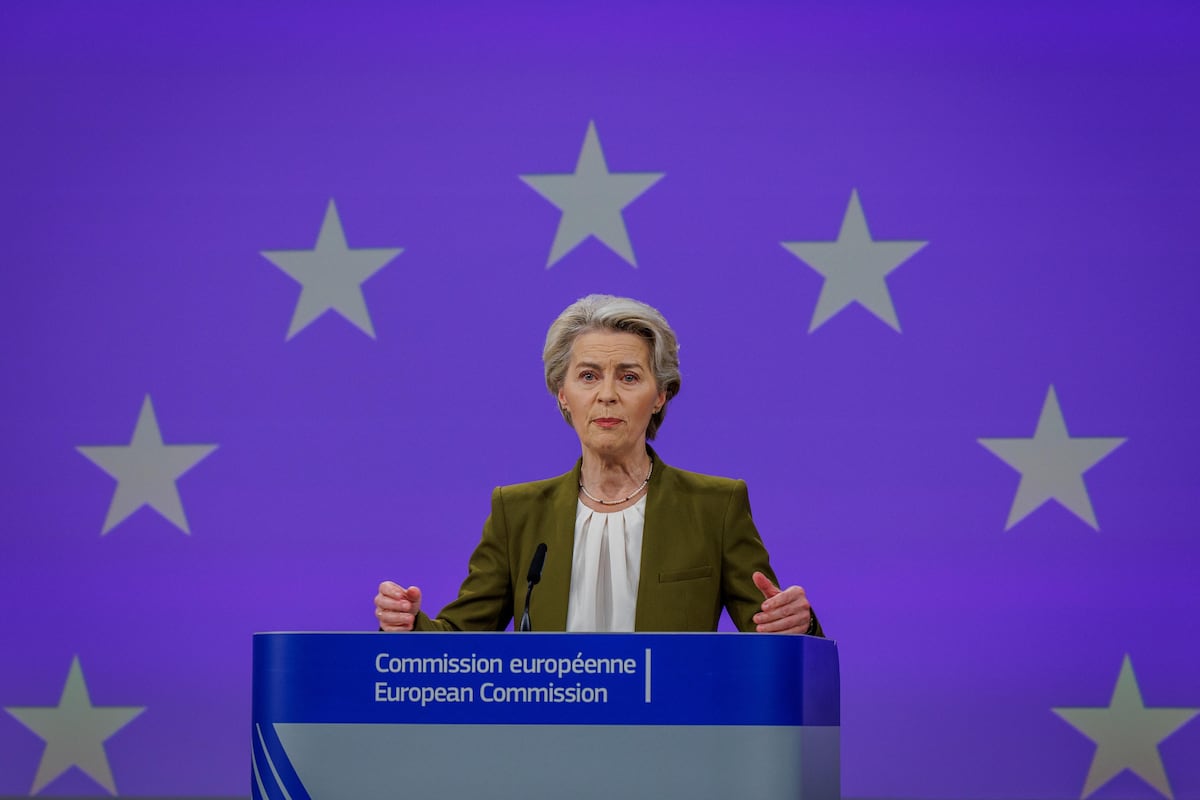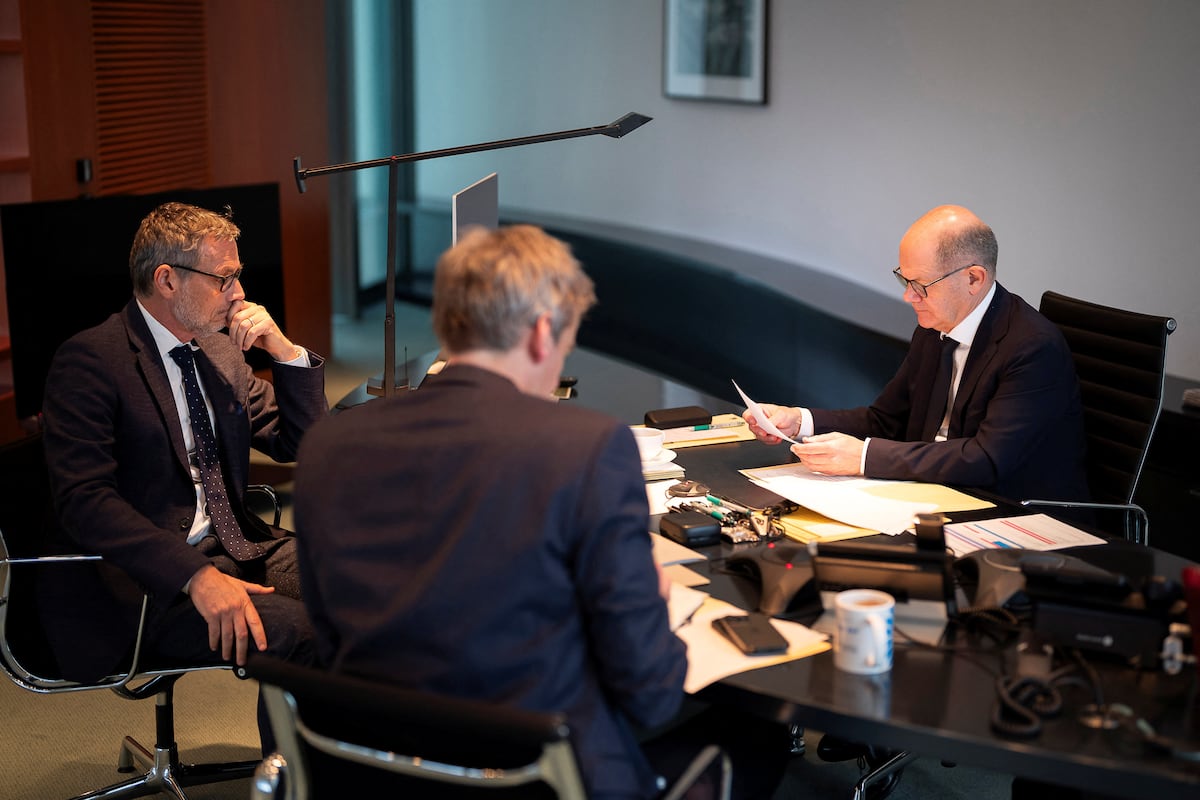The process of forming the new European Commission has degenerated into an increasingly harsh political fight. The objective of the president, Ursula von der Leyen, of launching the community Executive on December 1 is in danger due to the blockage of negotiations in the European Parliament between the European People’s Party (EPP) and the Social Democrats (S&D). The popular ones are currently vetoing Teresa Ribera, the Spanish candidate to become number two on the Commission, with a vice presidency with green policy responsibilities and the Competition portfolio. In response, the socialists threaten not to vote for another candidate for vice president, Raffaele Fitto, appointed by the Italian prime minister, the far-right Giorgia Meloni. The PPE has set out to demand that Ribera, vice president and minister of Ecological Transition, take responsibility for the Valencia disaster. The Social Democrats refuse to support Fitto and also Oliver Varhelyi, an ally of Prime Minister Viktor Orbán and appointed as Hungarian commissioner; They allege that this would break the cordon sanitaire against the extreme right in the EU.
The negotiations have been poisoned. Despite everything, some voices in the Commission have begun to launch the idea that perhaps a minor tweak in the portfolios or in the names of the positions – just enough to avoid having to do a general reorganization – would serve to break that impasse. “This formula could serve to put pressure on the leaders, who would fear losing their advantage.” [en el diseño del próximo Ejecutivo comunitario]and let the transfers begin,” says a community source.
Neither the calls and meetings with Von der Leyen nor the mediation of the president of the European Parliament, Roberta Metsola, have unraveled the talks. The popular Manfred Weber, the social democrat Iratxe García and the liberal Valérie Hayer, the leaders of the groups that are negotiating to begin the evaluations of Ribera, Fitto, Varhelyi and the other four pending commissioners, do not have meetings scheduled until next week, although sources from the groups assure that they are in permanent contact.
The EPP is moving forward with its intention to wait for Ribera to appear in Congress, in Madrid, on Wednesday to talk about the dana; They demand that she declare that she will resign if she is indicted, but even that is not a guarantee that she will finally receive her approval if all the pending commissioners are not passed as a single package. And even so, the Spanish Popular Party insists on demanding that the President of the Government, Pedro Sánchez, send another candidate to Brussels.
The conservatives, who have accumulated great power after the elections to the European Parliament in June, are gaining the upper hand. The numbers favor them: a right-wing majority would support their candidates, Fitto and Varhelyi, but parliamentary arithmetic no longer favors social democracy and Ribera could fall if a voting process is adopted.
The damage has been the final blow, but the opposition to Ribera of the conservatives is not restricted only to the Spanish and has an origin older than the catastrophe in Valencia: there is resentment towards the environmental policies firmly defended by Ribera on the part of sectors of the industry, especially the powerful automobile industry, and the farmers who come from afar and whom the EPP has been trying to capitalize on for at least a year and a half.
In fact, one of Weber’s toughest direct confrontations with Ribera was as a result of the Nature Restoration Law, which the German conservative leader sought to overturn by any means possible – precisely by establishing himself as the champion of farmers and ranchers – and which the vice president promoted. firmly during the Spanish presidency of the EU.
The European capitals are following the whole drama “very closely”, but for the moment they are keeping their cards to themselves. “There is no panic for now,” says a community diplomatic source, who believes that there is still “some time” for the parliamentary pulse to develop with the initially planned deadlines. Which does not mean, he points out, that it is not causing discomfort and irritation in Brussels. After all, there are six vice-presidents blocked, another commissioner (the Hungarian Varhelyi) still to be approved and, finally, the 26 commissioners of the new Commission, all of them to receive the final approval, including the 14 from the EPP. That is to say, the blockade does not only affect Spain, all EU members have been put on hold for the pulse of the EPP.
The idea, however, is to wait for the moment to see how things develop next week, at least the first few days of the week. But if the castling continues further, too close to the deadline for the plenary session at the end of the month, where the final vote should be taken, the phones of the leaders of the political groups of the European Parliament could begin to ring from various capitals.
The fear is that, if action is taken sooner, sources indicate, it could have the opposite effect and block the situation even further. At the end of the day, a source ironically says, this is the “great democratic moment” of the European Parliament, as the legislators themselves often like to say. Of course, if there is no Commission by November 27, “we will be really angry,” they warn.
At the end of the day, several representatives from various countries agree, the international situation, with two wars at the gates of Europe, the commercial battle with China and the imminent return to the White House of Donald Trump, is not such that we can risk being without a European Executive. “We would all like the new Commission to start as soon as possible, because it is necessary in view of the international situation,” summarizes one of the sources consulted.






